Assisted Living in Hawaii
The Pacific island state of Hawaii is home to 1,415,872 full-time residents, and 18.4% are aged 65 or older. The statewide population grew by 4.1% between 2010 and 2018, and the senior population increased by 30.2% during that time. With its hot, snow-free tropical climate, stunning natural features and warm, friendly communities, it's easy to see why Hawaii is a popular retirement destination.
Assisted living facilities in Hawaii cost an average of $4,375 per month, according to Genworth's 2019 Cost of Care Survey. Assisted living care costs in Hawaii are higher than the national average of $4,051, although actual costs vary with each facility.
This guide provides in-depth information about senior care costs in Hawaii, as well as about the overall quality of life for seniors in the state. There's also information on state and federal programs for seniors who need financial assistance with assisted living costs, as well as support services for older adults, caregivers and family members.
SeniorAdvice's Guide to Assisted Living in Hawaii
Hawaii has a SeniorScore of 76%, which is above the U.S. average of 72%. The SeniorScore combines over 100 unique factors such as crime statistics, weather, cost of living, life expectancy and the availability of health care services to help seniors decide how each state stacks up in terms of livability for older adults.
SeniorScore™ for Hawaii
 The SeniorScore™ is calculated based on over 100 variables, some of which are shown below. The final score is curved based on a linear curving method. For More info visit senioradvice.com/seniorscore.
The SeniorScore™ is calculated based on over 100 variables, some of which are shown below. The final score is curved based on a linear curving method. For More info visit senioradvice.com/seniorscore.
- Hawaii's SeniorScore™ of 76 is higher than the national average of 72.
- Hawaii has high access to Medicare registered healthcare providers.
- Hawaii has a high number of hospitals within the state.
- Hawaii has an average number of senior living facilities within the state.
- Hawaii has an average number of home healthcare providers operating in the state.
- The average life expectancy in Hawaii is 81.3, compared to the national average of 78.6.
- Hawaii has a very high overall property crime rate compared to national averages.
- Hawaii has a very high overall violent crime rate compared to national averages.
- 28% of the population in Hawaii are seniors, compared to 29% nationally.
- Hawaii has 67 golf courses in the state.
- Hawaii has an average number of municipal parks throughout the state.
- Hawaii has 665 churches in the state.
- The property taxes average 1.56% of total income in Hawaii, which is significantly lower than the national average of 2.79%.
- The property taxes average 0.25% of property value in Hawaii, which is significantly lower than the national average of 1.09%.
- The average sales tax in Hawaii is 4.25%, which is significantly lower than the national average of 6.97%.
- The average state income tax in Hawaii is 6.21%, which is significantly higher than the national average of 3.38%.
- The mean household income in Hawaii is $84,201, which is significantly higher than the national average of $64,580.
- Hawaii's median household income is $68,872, which is significantly higher than the national average of $51,560.
- The average per capita income in Hawaii is $29,109, which is significantly higher than the national average of $25,611.
- Assisted living costs in Hawaii average $46,319 per year, which are higher than the national average of $42,700.
- Nursing home costs in Hawaii average $144,456 per year, which are significantly higher than the national average of $92,481.
- Costs for adult daycare in Hawaii average $18,736 per year, which are higher than the national average of $17,931.
- Costs for home healthcare in Hawaii average $56,377 per year, which are significantly higher than the national average of $46,197.
- The unemployment rate is about 6.16% in Hawaii, which is significantly lower than then national rate of 8.26%.
- The overall cost of living in Hawaii is very high compared to national averages.
- 0.92% of the senior population in Hawaii are financially responsible for at least one grandchild.
- Hawaii receives an average of 47.1 inches of rain per year.
- Hawaii has an average annual temperature of 74.8 degrees fahrenheit.
- Hawaii has an average low temperature of 67.0 degrees fahrenheit.
- Hawaii has an average high temperature of 81.5 degrees fahrenheit.
- Hawaii has an average population density of 1,047 people per square mile.
- Hawaii has a low public school quality ranking.
- Hawaii has a very high public school safety ranking.
- Hawaii has a high graduation rate of 90.10%.
With its SeniorScore of 76%, Hawaii is considered to be an above-average place for seniors to live. The state ranks high for health and safety, with numerous Medicare-registered health care providers, an exceptionally high number of hospitals and a life expectancy of 81.3 years, which is 2.7 years longer than the national average of 78.6 years.
There are 665 churches in Hawaii, 67 golf courses, and an average number of municipal parks. Property and violent crime rates here are high in comparison to national rates, which has a negative impact on the SeniorScore.
At 6.21%, the average state income tax rate in Hawaii is nearly double the national rate of 3.38%. Sales taxes here are also high in comparison to other states, although property taxes are much lower than the national average.
Top Assisted Living Facilities in Hawaii
Avalon Care Center - Honolulu is a 108 room senior care community. It is situated within the Liliha-Kapalama area of Honolulu, Hawaii. The community is in a generally middle income area, with an average household income of $67,978. ...
Pearl City Nursing Home is located near the Waipio neighborhood of Pearl City, Hawaii. It is a 122 bed nursing home facility. With about 41,000 residents in the zip code of 96782, the neighboring area is densely populated. ...
Life Care Center of Hilo is located at 944 West Kawailani St in Hilo, Hawaii. It is a 252 bed senior housing facility. With an average household income of $53,729, the community is in a predominantly middle class ...
Located within the Kaneohe Station area of the city, Wilson Senior Living is a senior community serving Kailua, Hawaii. The facility is in a mostly affluent area, with an average household income of $87,193. It is densely populated, ...
Wilson Senior Living-Kailua is a senior housing facility situated in the Ala Moana-Kakaako area of Honolulu, Hawaii. The community is in a primarily middle class area, with a median per-household income of $45,742. With around 20,000 individuals living ...
Situated in the Punaluu area of the city, Oceanside Hawaii Assisted Living is a senior housing facility serving Hauula, Hawaii. The surrounding area is sparsely populated, with roughly 7,000 individuals living in the 96717 zip code. With an ...
Hawaii Kai is a senior housing community situated near the Hawaii Kai area of Honolulu, Hawaii. With an average per-household income of $79,571, the facility is in a primarily upscale area. It is densely populated, with around 31,000 ...
Located within the Liliha-Kapalama neighborhood of Honolulu, Hawaii, Maluhia is a 158 unit senior housing facility serving residents 55 and over. The encompassing area is heavily populated, with about 56,000 individuals residing in the zip code of 96817. ...
15 Craigside is a 11 unit senior housing community situated within the Liliha-Kapalama neighborhood of Honolulu, Hawaii. The encompassing area has a dense population, with roughly 56,000 individuals residing in the 96817 zip code. With a median household ...
Kuakini Geriatric Care is a 187 bed senior care facility. It is situated in the Downtown area of Honolulu, Hawaii. With an average household income of $58,071, the facility is in a largely middle class area. It ...
Kauai Care Center is a 53 unit senior care community situated around the Pakala Village neighborhood of Waimea, Hawaii. The encompassing area is sparsely populated, with about 3,000 residents in the 96796 zip code. With an average household ...
Located nearby the Wainaku area of Hilo, Hawaii, Hale Anuenue Restorative Care is a 120 unit senior housing community. The neighboring area is heavily populated, with around 47,000 individuals residing in the zip code of 96720. With a ...
One Kalakaua Senior Living is located within the McCully-Moiliili neighborhood of Honolulu, Hawaii. It is a 32 bed senior housing community. The facility is in a largely middle income area, with an average per-household income of $42,856. ...
Situated within the Downtown neighborhood, The Plaza at Punchbowl is a senior housing community in Honolulu, Hawaii. The encompassing area is heavily populated, with about 46,000 poeple living in the zip code of 96822. It is a mostly ...
Regency at Puakea is a senior care community located in the Puhi neighborhood of Lihue, Hawaii. The neighboring area has a medium-density population, with approximately 16,000 individuals residing in the zip code of 96766. With an average family ...
Mahelona Medical Center is situated near by the Wailua area of Kapaa, Hawaii. It is a 66 unit senior housing facility. With approximately 19,000 individuals living in the 96746 zip code, the surrounding area has an average population ...
Harry and Jeanette Weinberg Care Center is a 44 bed senior care community situated nearby the Heeia neighborhood of Kaneohe, Hawaii. The surrounding area is densely populated, with approximately 55,000 people residing in the 96744 zip code. It ...
Situated in the Downtown neighborhood, The Plaza at Moanalua is a senior housing community in Honolulu, Hawaii. With an average per-household income of $67,978, the facility is in a mostly middle income area. It is heavily populated, with ...
Located in the Waipio Acres neighborhood, The Plaza at Mililani is a senior care facility in Mililani, Hawaii. The community is in a largely well-to-do area, with an average per-household income of $92,471. With approximately 55,000 people residing ...
Hale Makua Health Services is a 254 room nursing home facility. It is located at 472 Kaulana St in Kahului, Hawaii. The community is in a primarily middle income area, with an average per-household income of $57,566. ...
The Cost of Assisted Living in Hawaii
According to Genworth Financial's 2019 Cost of Care Survey, assisted living care in Hawaii costs an average of $4,375 per month. Assisted living costs in Hawaii are $324 higher than the national average of $4,051 per month.
- Hawaii: $4,375
- National: $4,051
The Cost of Assisted Living in Hawaii's Top Cities
As a relatively small state, assisted living data in Hawaii is only available for two cities, the capital city of Honolulu and Kahului, located in Maui County. Average monthly assisted living costs in Kahului are $4,300, while the average cost in Honolulu is $4,500.
- Urban Honolulu: $4,500
- Kahului: $4,300
Senior Care Cost Comparison in Hawaii
Seniors in Hawaii who need care can choose between residential services such as assisted living or nursing homes, or they can opt to remain in their own home with support from a homemaker, home health care aide or adult day health program. At an average monthly cost of $4,375, assisted living is an affordable option since it includes room and board, recreational programming and help with activities of daily living. By comparison, in-home care services cost between $5,100 and $5,220 per month for 44 hours of service weekly. These costs are in addition to ongoing expenses such as food, utility payments and rent or mortgage.
- Assisted Living: $4,375
- Home Health Care: $5,220
- In-Home Care: $5,100
- Adult Day Care: $1,582
- Nursing Home Care: $11,650
Financial Assistance for Assisted Living in Hawaii
Med-QUEST
Phone Number: (808) 524-3370 (Oahu); 1 (800) 316-8005 (Neighbor Islands)
Website: https://medquest.hawaii.gov/
Med-QUEST is Hawaii's Medicaid managed care program for the elderly, blind and disabled.
Administered by the Hawaii Department of Human Services, Med-QUEST gives qualified seniors and adults with some chronic disabilities access to a range of health care services and non-medical supports, including assisted living.
The Med-QUEST program replaces all previous Hawaii Home and Community Based Service Medicaid waivers, thereby eliminating enrollment caps and wait lists. Under Med-QUEST, every senior who qualifies for coverage is provided with a personalized care plan.
Med-QUEST services are assigned based on medical need, and these services may include:
- Adult day care and adult day health programming
- Assisted living services
- Non-medical transportation to Medicaid-funded appointments
- Personal and attendant care
- Access to a personal emergency response system
- Provision of durable and disposable medical equipment such as mobility devices and ostomy supplies
Med-QUEST covers the cost of medical and non-medical care services for seniors in assisted living facilities, but Med-QUEST covered seniors are responsible for the room and board portion of their assisted living costs.
To qualify for Med-QUEST, seniors in Hawaii must:
- Be aged 65 or older, or qualify for Medicaid due to disability
- Earn up to $1,224 each month (as individuals) or up to $1,653 (as a couple) from all sources, including employment and pensions
- Own no more than $2,000 worth of countable assets per person, or $3,000 per couple when submitting a joint application
A number of Med-QUEST eligibility branch offices are located throughout Hawaii. At these offices, seniors can submit Med-QUEST applications, update their information and check on their application status. Seniors can locate their nearest office by calling the customer services call center listed above.
VA Aid and Attendance Benefits and Housebound Allowance
Phone Number: (844) 698-2311
Website: https://www.va.gov/pension/aid-attendance-housebound/
Veterans, their dependents and survivors who receive a regular VA pension and who need assisted living care may qualify for a higher pension payment through one of two VA pension top-up programs.
The U.S. Department of Veterans Affairs' VA Aid and Attendance and VA Housebound allowance programs provide enhanced pension benefits for beneficiaries who have chronic illnesses or disabilities.
To qualify for Aid and Attendance benefits, VA pension recipients must meet at least one of the following criteria:
- Reside in a nursing home as a result of physical and/or mental limitations related to a disability
- Have a severe visual impairment, even when wearing corrective lenses
- Be bedridden due to chronic illness or disability
- Need help from a caregiver to perform one or more activities of daily living, including getting dressed, using the toilet or adjusting a prosthetic device
To qualify for the Housebound allowance, VA pension recipients must:
- Have one permanent disability that is rated by the VA at 100% and that restricts the applicant to their home, which can be an assisted living facility, or
- Have at least one permanent disability rated at 100%, and at least one additional disability rated at 60% or higher
Hawaii Assisted Living Rules and Regulations
Hawaii's assisted living facilities (ALFs) are required to comply with a number of regulations designed to ensure residents receive safe, appropriate care. The Department of Health, Office of Health Care Assurance is responsible for the licensing and inspection of ALFs throughout the state. Hawaii regulations classify personal care services as either Level I or Level II.
Scope of Care | Hawaii ALFs with a Level I license can provide limited personal support services including housekeeping, meal preparation, and assistance with bathing and eating. Level II facilities can also include health maintenance tasks provided by a personal care aide, home health care worker or other paraprofessional. ALFs must provide apartment-style accommodations that include a private bathroom, full kitchen and emergency call system that residents can use to summon on-site staff. ALFs can choose to decline applications from residents who have advanced medical needs that cannot be safely managed in an assisted living facility, as well as those who have a history of violence or sexual aggression. |
Care Plan Requirements | ALF staff must conduct a comprehensive needs assessment on every resident, and this plan must accurately reflect the individuals' medical needs and personal preferences. This plan should also include details such as how services will be provided as well as the frequency and duration of services. |
Medication Management Requirements | ALFs can provide assistance with medication self-administration by giving residents verbal reminders, reading prescription labels and transferring the medications into a container that is easily managed by the resident. ALF staff may also administer medications under the direct or indirect supervision of a registered nurse. All medications administered by facility staff must be reviewed every 90 days or less by a physician or licensed registered nurse. |
Staff Requirements | All ALF staff must comply with current health department tuberculosis clearance procedures, be certified in CPR and first aid, and be willing and able to comply with all standards of care. While there are no set staffing ratios for ALFs in Hawaii, facilities are expected to schedule staff at the levels needed to provide safe, respectful care for all residents. |
Staff Training Requirements | Newly-hired staff must complete a basic orientation on safety procedures and resident rights. Staff must also complete at least six hours of in-service training each year on topics related to assisted living. |
Medicaid Coverage | Medicaid recipients who reside in a licensed ALF may qualify for enrollment in Med-QUEST, Hawaii's Medicaid managed care program. This program covers the cost of medical and non-medical care services for seniors who reside in an assisted living facility. |
Reporting Abuse | Anyone who suspects elder abuse, neglect or safety concerns related to an ALF can file a report with the Long Term Care Ombudsman Program by calling (808) 586-7268. |
Free Assisted Living Resources in Hawaii
Seniors in Hawaii who need help navigating their Medicare options can schedule a free, one-on-one appointment with a certified volunteer counselor through the State Health Insurance Assistance Program. Also known as SHIP, this program provides no-cost, unbiased health insurance counseling, education and information to those who either have or are preparing to enroll in Medicare.
SHIP counselors can also help eligible seniors and people with disabilities enroll in a Medicare plan, access waiver programs and apply for low-income subsidy programs that cover costs related to Medicare plan premiums, deductibles and co-pays.
Contact: To contact a Hawaii SHIP counselor, call (808) 586-7299 or 1 (888) 875-9229 from neighbor islands.
Seniors, their family members and their designated representatives can contact Hawaii's Long Term Care Ombudsman Program (LTCOP) with concerns or complaints about long-term care facilities in the state. The LTCO investigates concerns related to quality of care, safety and residents' rights in all long-term care facilities in Hawaii, including ALFs.
The LTCO also recruits and trains certified LTCOP volunteers who work as advocates for seniors living in long-term care facilities. LTCO volunteers make weekly visits to long-term care centers throughout the state to ensure residents' rights are protected.
Contact: To contact Hawaii's LTCOP, call (808) 586-7268.
Hawaii Agencies
Executive Office on Aging
Address: 250 South Hotel Street, Suite 406, Honolulu, Hawaii 96813
Phone Number: (808) 586-0100
Website: https://health.hawaii.gov/eoa/
Hawaii's Executive Office on Aging coordinates statewide services for seniors in accordance with state and federal laws. The EOA oversees a number of free programs for seniors and caregivers, including the Senior Medicare Patrol Hawaii, a volunteer-based Medicare fraud prevention program, the Family Caregiver Support program and the Healthy Aging Partnership, a collection of evidence-based disease prevention programs.
Any resident of Hawaii can contact the EOA for more information on government-funded programs and services for seniors, their family members and caregivers.
Area Agencies on Aging in Hawaii
Hawaii is home to four regional Area Agencies on Aging where seniors, their family members and caregivers can access free health insurance counseling, learn about local resources for seniors, and sign up for transportation and nutrition programs. Located in Hawaii County, Maui, Kauai and Honolulu, these AAAs are regulated by Hawaii's Executive Office on Aging. Seniors can connect with their nearest AAA by calling the statewide info line at (808) 586-4400.
Veteran Affairs Offices in Hawaii
Veterans, dependents and survivors in Hawaii may be eligible for federal VA benefits and services administered by the U.S. Department of Veterans Affairs. The VA offers a number of benefits that seniors can use towards the cost of assisted living, including the VA pension and two enhanced pension programs, Aid and Attendance and Housebound.
The state also operates the Hawaii Office of Veterans' Services. The Office provides vets and their families with free information on federal and state benefits and programs, help with VA benefit applications, and burial assistance for vets seeking internment at a Hawaii State Veteran Cemetery. To contact the VA, call (844) 698-2311. For Hawaii's Veterans' Services, call (808) 433-0420.
Social Security Offices in Hawaii
The United States Social Security Administration administers the Supplemental Security Income (SSI) benefit. To qualify for SSI, seniors 65 and older must meet income and resource limits or be classified as permanently disabled in accordance with SSI eligibility requirements. SSI-eligible seniors can use their SSI benefits towards the cost of assisted living care.
To connect with the nearest Social Security office, seniors in Hawaii can phone the SSA at 1-800-772-1213.


 The SeniorScore™ is calculated based on over 100 variables, some of which are shown below. The final score is curved based on a linear curving method. For More info visit
The SeniorScore™ is calculated based on over 100 variables, some of which are shown below. The final score is curved based on a linear curving method. For More info visit 


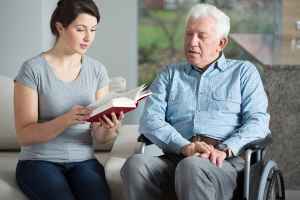
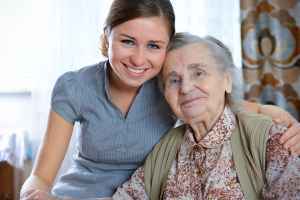



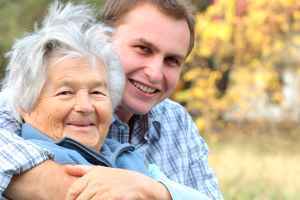



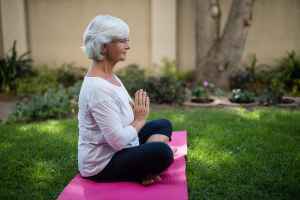



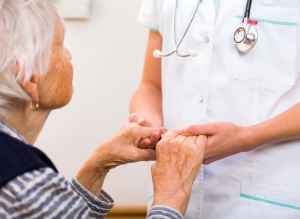

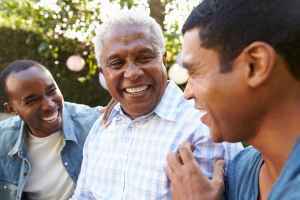
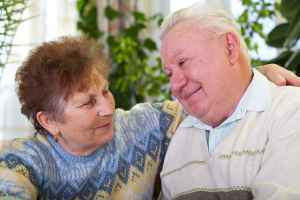
 Your Information is Processing
Your Information is Processing